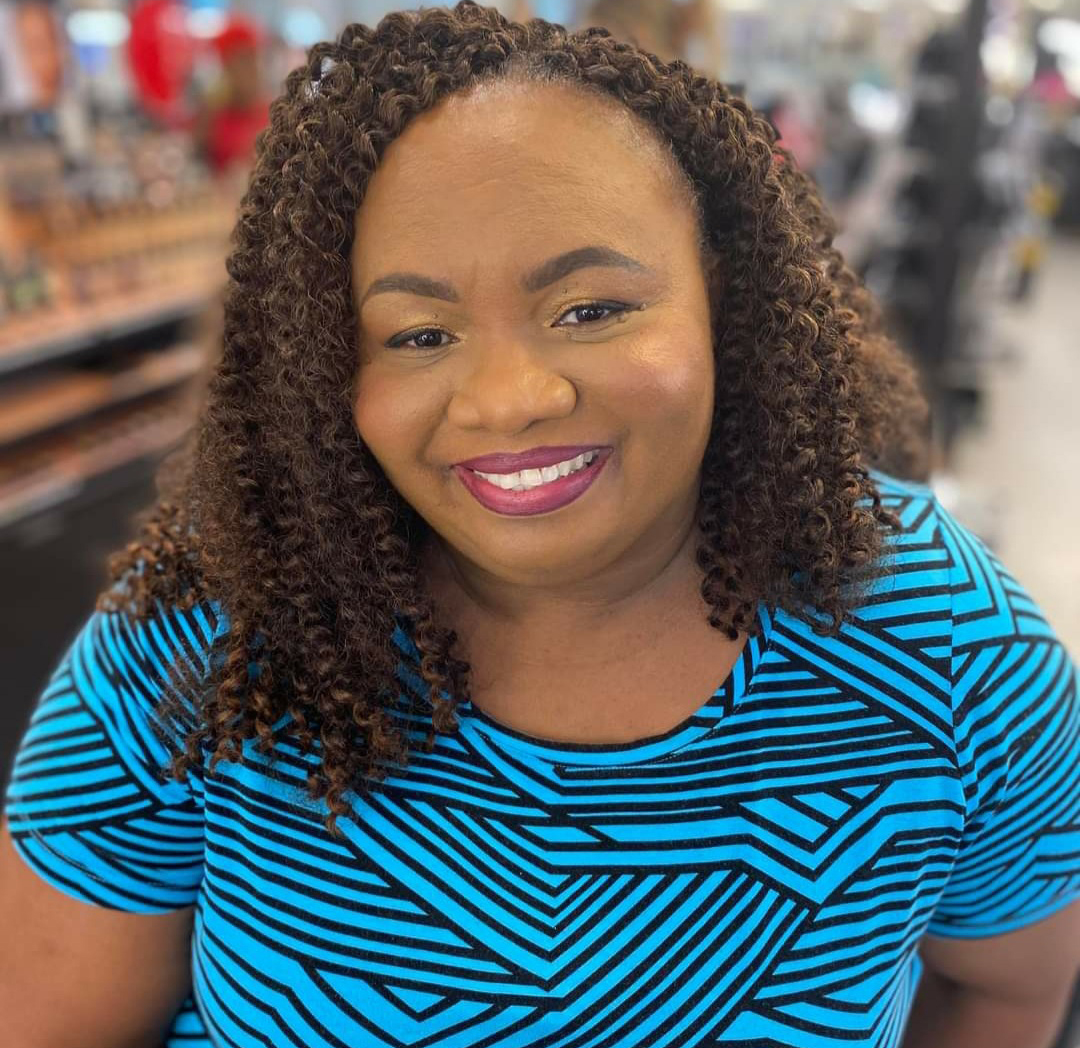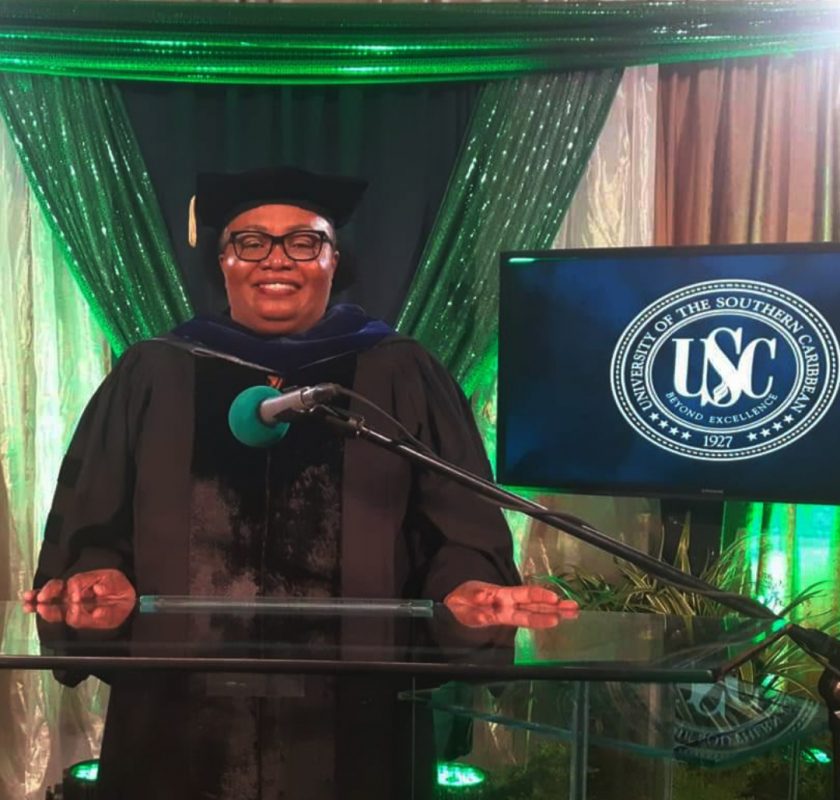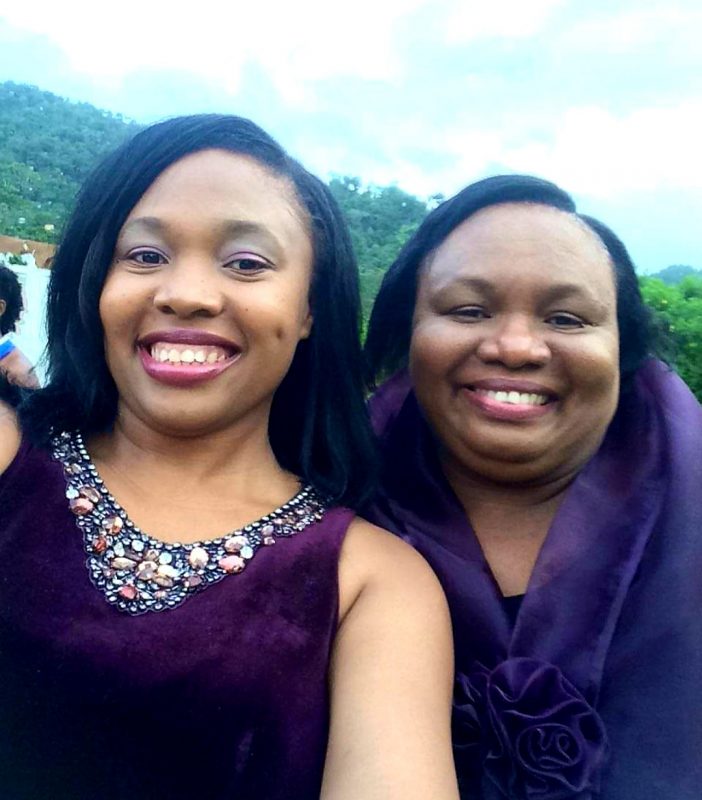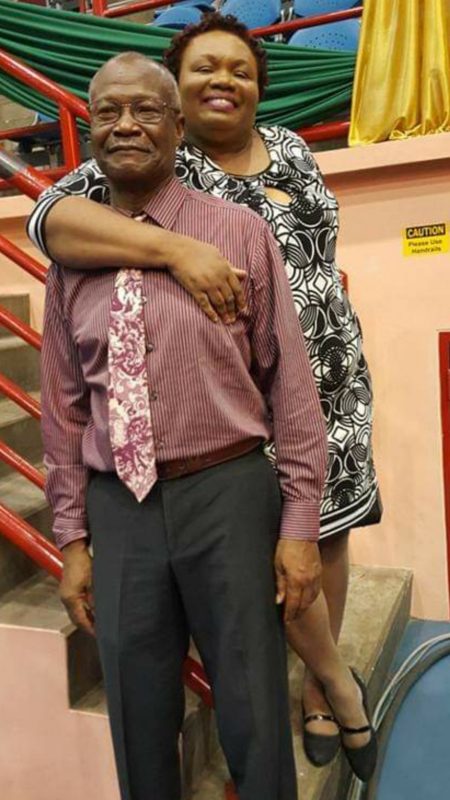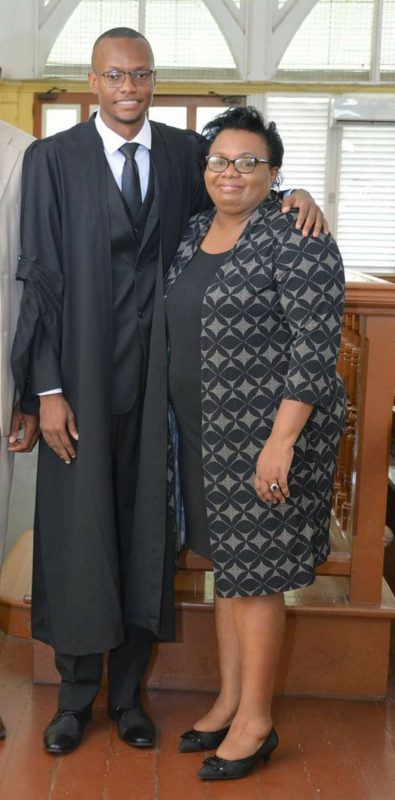Educator and former broadcast journalist Dr Wanda Chesney nee Rohlehr has spent the last 17 years abroad simultaneously sharing the wealth of skills and knowledge at tertiary institutions she acquired in her journey but has returned home to give of her expertise through her year-old WERC Consultancy, as she believes her steps are ordered by God for the greater good.
A staunch member of the Seventh Day Adventist Church, Chesney believes all the jobs she had along the way were predestined. “I’m a woman of faith. My story is about providence and faith. It is about God’s hand in my life and about God leading me and I follow. It is about my ending,” she told Stabroek Weekend.
Chesney has been a secondary school teacher, a radio and television journalist, a project planner, and a tutor and lecturer at universities in Guyana, the Caribbean and in England. Her last appointment was provost of the University of the Southern Caribbean (USC) in Trinidad and Tobago (TT) where she was based for 11 years, before resigning to form WERC, initials for her names, Wanda Elizabeth Rohlehr Chesney.
The consultancy, which initially focused on a range of services including communications, social media management, media training, women and youth empowerment, short courses in crisis communication and crisis management, was birthed in TT. “I started to bid for contracts locally and regionally with governments and international organisations,” she said. “I pulled a corps of specialists to compliment me as the need arose.”
Last year, she decided to offer her services at home in Guyana where she felt they were more needed because of a glut of human resources in TT. She registered WERC Consultancy here in November last year. She had also applied and successfully obtained a post with the United Nations Population Fund (UNFPA) dealing with reducing gender-based violence in Guyana. Her role includes developing teaching materials, curriculum and training vital stakeholders interacting with the public including members of the Guyana Police Force.
“Now that I am back, I’m looking to develop social, educational and empowerment programmes for women, children, the youth and for men. Men are being left behind in training,” Chesney opined.
In July she conducted a one-week retreat for girls between the ages of 15 and 18 years on empowerment. Later this month she will host a youth empowerment programme. Her ultimate goal is to establish a school offering professional development and continuing education courses for students moving from high school in the world of work and continuing education.
Passionate about eliminating gender violence and advancing the women and girls agenda, Chesney worked with several women’s organisations in TT including Soroptimist International, and PLOTT (Powerful Ladies of Trinidad and Tobago). “Now that I am at home, the same energy and fire is burning within me. I want to do some of those things here,” she said.
Background
Born to Reuben Rohlehr and Eleanor Evans, Chesney said her mother, who was loving and always helping people, was the strongest influence on her. “She had the gift of anointing ‘narah’ [stomach pain],” Chesney said. She massaged people with ‘narah’ and after the pain subsided she fed them. Though she does not massage, Chesney loves feeding people.
As a child, she said, her mother told her she was destined to become an educator after observing her attempting to teach the plants her mother decorated her home with.
Chesney was among the second batch of students at Queen’s College to write several subjects at the Caribbean Secondary Education Certificate (CSEC) examinations. There she also wrote other subjects at the General Certificate of Education ordinary and advanced levels examinations.
One of eight siblings, three girls and five boys, she believed that growing up with five older brothers made her fearless, adventurous and self-motivated.
After leaving Queen’s College she worked at the Ministry of Home Affairs for a short period. She then moved to the Guyana Broadcasting Corporation (GBC) as a current affairs assistant. There she started announcing and producing on Voice of Guyana (VOG) and Radio Roraima (RR). Given the opportunity to go on the air and having had a good first try, Chesney was excited. She told her supervisor Margaret Lawrence she wanted to do broadcasting and Lawrence encouraged her to work in shifts.
“I had babies, but I started working every weekend on a shift. I still worked full time as current affairs assistant,” she recalled. She wanted to do communications at the University of Guyana (UG) and discussed it with her husband, Desmond ‘Ches’ Chesney.
The GBC could not facilitate her time off to study so Chesney resigned. “This meant Ches alone would work. With one salary and three children, that was going to be challenging,” she said. In 1990 she started studies at UG.
While she was attending UG, her two younger children were at St Agnes Primary. One day the principal of St Rose’s High, which shares a compound with St Agnes, told her he needed an English teacher. He asked if she was interested.
Having passed English at CSEC and A-Levels she agreed. “I taught English Language and English Literature to fourth and fifth formers at St Rose’s for five years without any teacher’s training and I had the highest set of passes at CSEC in the two classes I taught. Other teachers taught other fourth and fifth form classes,” she said.
While teaching part time at St Rose’s and studying at UG, Chesney joined the team that started the Evening News based on a recommendation by Margaret Lawrence. The Evening News was a new television newscast businessman Anthony Vieira started.
“I worked around the classes to get stories. From school I arranged interviews for TV. I was teaching, attending classes, doing the news and picking up my children from school, sometimes in a day’s work,” she recalled.
When she could not take the children to and from school, a hired driver did that task. “Where there is a will you will find a way,” she said.
In spite of juggling part-time jobs and caring for her children, Chesney graduated with a bachelor’s degree in communications in 1994 with honours.
On staff at UG
During the last quarter of 1995, UG’s then vice chancellor Professor Dennis Craig asked Chesney to act as UG’s public relations officer while the person who held the substantive position proceeded on maternity leave.
“For three months, I ran the department. Because of my media experience the university was in the media almost every day in a positive light,” she said.
At the end of her stint, Craig asked her to stay on full time at the university as a project planner in the Office of Resource Mobilisation and Planning, to, among other duties, liaise with local and international universities and institutions to establish projects for UG.
“I was never trained in project
planning. With guidance, I established links with several universities including Anton de Kom University in Suriname, the University of the West Indies (UWI) and universities in the USA, in common areas of collaboration,” she said.
After completing the bachelor’s degree in communications she began a post-graduate diploma in international relations at UG and graduated in 1996.
Shortly after graduating, at the then deputy vice chancellor’s recommendation, Chesney applied and obtained a partial scholarship to do a master’s degree in developmental studies at the Consortium Graduate School, UWI Mona Campus, Jamaica. Her husband provided the funding she needed to travel and to cover her initial living expenses. She resigned from her job at UG and went to Jamaica.
To meet her financial obligations and other living expenses in Jamaica, Chesney taught sociology to undergraduates at UWI and research and social statistics at the University of Technology. At one time, her husband, who visited her at Mona, was not satisfied with her living conditions and moved her to a better apartment with better furnishings. On completion of her studies in 1998, she returned home.
She was awarded as the Best Public Policy Student after obtaining a score of 98 out of 100 in that course and graduated with honours.
Ches
Speaking of her husband, Chesney said, “Ches has always been very supportive of what I do. We built a life together based on genuine love and respect for each other. We had a good solid relationship as friends before marrying.”
She met him, then a 21-year-old, who was her brother’s friend, when she was 16. She was still at school when they met. However, Desmond waited until she was 21 years old to marry her. “He was very respectful and it was so easy to love him,” she said. This year, the two celebrated their 39th wedding anniversary.
Her husband has Alzheimer’s and Chesney is now caring for him. “I used to think that as we grew older, with the children getting married and going off on their own, Ches and I would be able to travel the world,” she said.
The two have three children, Clevaughn, Vanya and Kiev who have their own careers and families.
GWLI
On her return to Guyana in 1998, she did a short stint with the Constitutional Reform Commission (CRC) as the deputy head of communications and outreach.
Dr Victor Forsythe, who was head of communications studies at UG when she was a student, asked her to teach radio and television broadcast on a part-time basis. In Jamaica, Chesney had done some short courses with the Caribbean School of Media and Communication Studies, so she was confident in imparting her knowledge.
While wrapping up her contract with the CRC, she applied for the post of director of the Guyana Women’s Leadership Institute (GWLI) at Cove and John and was successful. It was a one-year stint.
There she designed several professional, leadership, empowerment and grassroot programmes for the women. She insisted that every woman passing through the GWLI must be computer literate. She established a computer laboratory funded by the United Nations Development Programme (UNDP). The GWLI, under her leadership, also secured software for a blind woman.
“I developed a suite of courses for the women pulling all my knowledge and training to develop them. Over 300 women were trained while I was there,” she stated.
After GWLI, Chesney returned to UG as head of its Communications Centre. She obtained a number of training resources including television through funding provided by the UNDP, to aid the students in their studies. The Communications Centre developed a website, when websites were new, to showcase its work.
About that time, Chesney decided to pursue her doctorate degree. She was in St Lucia when she was interviewed and accepted to the University of Sheffield (UoS) in England. The fees were £12,500 a semester. “I didn’t have a cent to go there. I came home to Guyana and I started praying. While I was praying, Ches came into the room and said we could remortgage the house,” she recalled. “That is a testimony of my husband’s love and support for me and how God works.”
At the bank, within a day the loan was approved. The manager of the loan section was a former student of hers at UG who helped to move her loan application process forward.
England
In England, Chesney struggled financially to meet her tuition and living expenses in the first year. “I started doing three jobs. The loan I had gotten, when converted in foreign exchange, covered only one semester’s fee.”
Chesney taught English for Speakers of Other Languages (ESOL) to refugees who came through the Home Office in England for two days a week at £50 an hour. She taught English at Sheffield International College to students who needed to qualify in the language for entry to the University of Sheffield. She also taught in the department of business law and social sciences introductory courses in business and economics to undergraduates, and philosophy and research methodology to master students. “For five years I did that as I studied for my doctorate,” she related. She also taught part-time English and citizenship education for the English Chinese Association, to Chinese nationals going to England.
During her fourth year, she developed blood clots in her lungs, collapsed while teaching and was hospitalised for a month in the Sheffield Medical School.
Members of the Caribbean Seventh Day Adventist Church took care of her and her daughter, Vanya, who was with her. “Vanya had stopped working. She felt I was going to die. My landlord, a Somalian, waived the monthly-rent of £650 for two months. A friend paid my taxi fare for a week when I returned to work. I saw the goodness of God,” she said.
She took a year off academic studies.
USC
After obtaining her doctorate in 2011, she applied for a permanent post at UoS with the intention of setting up home in England. However, Chesney received an email from a former president of the Conference of Seventh Day Adventist in Guyana about the need for an associate vice president for academic administration at the USC in TT. The USC is run by the Adventists.
She was not prepared to return to the Caribbean. “As a graduate I could have worked at the university for two years without any documentation then apply for residency, and after ten years, citizenship. That was my thinking,” she said.
Her eldest son, Clevaughn, who was in Guyana, persuaded her to check out the USC’s website and to apply for the post advertised. “That was like a deputy vice chancellor. I said they wouldn’t consider me.”
She recalled that when she was sick, she had asked God to spare her life so she could see her children grow and spend a long life with her husband. She promised to serve him to the day she died. “I remembered that promise,” she said. “I was earning £3,600 a month at the university.”
The next day was the deadline for submission of applications and she submitted hers. She was interviewed, shortlisted and about a month later informed she was the successful candidate.
She started working at USC in December 2011.
Within a year she was promoted to Vice President, Academics, a position she held for eight years. With some changes in the administration, Chesney was promoted to Associate Provost. When the Provost left she acted in the position for six months before being appointed to the post.
“Provost is the highest position I have held at a university. I served three presidents over 11 years. I really grew in leadership at USC. My mentors were men including presidents, Dr Sylvan Lashley and Dr Clinton Valley.”
Among her achievements at USC, Chesney established a student advice centre and she encouraged a number of faculty to obtain their master’s and doctorate degrees to teach undergraduates.
She implemented six new degrees to the list offered including early childhood education, special education, national security and pre-medical studies. She established relationships with national and regional governments and institutions. She liaised with public and private sector institutions where students did internships to obtain feedback to enhance the degree programmes.
She established the School of Graduate Studies and Research, was responsible for the establishment of the Professional Development Institute and was instrumental in the development of a handbook of academic policies which was digitised during the pandemic.
She is especially proud of guiding the university through the pandemic and ensuring that all the faculty were trained in online teaching.
“My time at USC was actually the highlight of my career. I never saw USC as a destination I was aiming for,” she said.
She left the USC in 2022 at the tail end of the Covid-19 pandemic.
